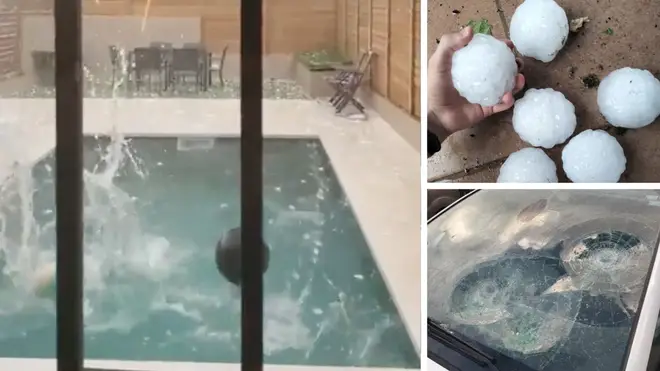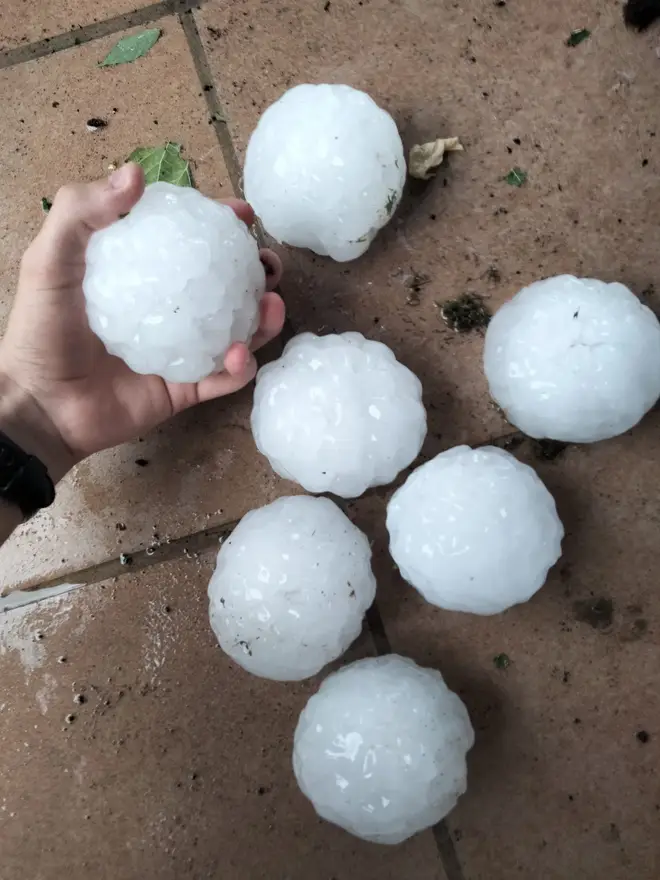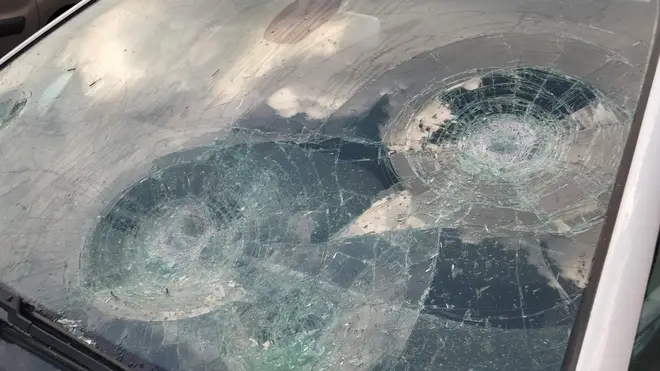
Ian Payne 4am - 7am
31 August 2022, 12:42

A one-year-old girl has been killed by a four-inch hailstone during a horror storm in Spain.
The child was one of around 30 people hurt after being directly hit by hailstones in and around the Catalan town of La Bisbal de l'Emporda.
She was rushed to Josep Trueta Hospital in Girona on Tuesday afternoon but died the following morning due to severe head trauma, according to local media.
The nationality of the toddler is still unknown.

Most of the other people injured suffered broken bones, with one woman remaining in hospital.
Terrifying footage from the area showed car windows being smashed in by the huge hailstones as well as them bouncing like golf balls in public squares and splashing into swimming pools.
The mayor of La Bisbal d'Emporda, Carme Vall, said buildings had also been damaged in the deluge.
Read more: British mum struck by lightning in Croatia is in a coma will be airlifted to UK
QUINA BARBARITAT... Un altre vídeo d'aquest vespre a casa un amic, a la Bisbal d'Empordà. Sembla Oklahoma. Descomunal 😱😱😱💥💥💥 @eltempsTV3 @enricagud @Oriol_RB @Jordisolerramio @meteofarnell @meteocat @TomeuRigoR pic.twitter.com/ONrWbCsePr
— Marc Gassó Torrents (@MeteoGasso) August 30, 2022
Catalan weather chiefs said the hailstones that fell in the area were the largest in 20 years. They measured at around 11cm in diameter - equivalent to four inches.
The torrential downpours were reported to have begun at around 7.30pm on Tuesday, lasting around 15 minutes.
The mayor told Spanish National Television that the little girl was with her parents when she was hit by the ball of ice.
Pedregada a la bisbal. Terrible tarda amb pedres com préssecs, que ho han trinxat tot. pic.twitter.com/sSX9eUKtuo
— francesc teixi (@FrancescTeixi) August 30, 2022
Tourists visiting Spain over the summer were warned earlier this month they could be caught up in rare Mediterranean hurricanes.
Tropical-like cyclones - known as medicanes - increased with this year's record heatwaves, experts said, blaming global warming for the stark change.

According to MailOnline, oceanographer and weather expert Yurima Celdran said: "Higher Mediterranean temperatures provide a greater source of energy for medicanes and amplify their destructivity.
"Sea temperatures this autumn are expected to be higher than normal and if the necessary atmosphere conditions are in place, it would not be unreasonable to think the Mediterranean could harbour a medicane this year."